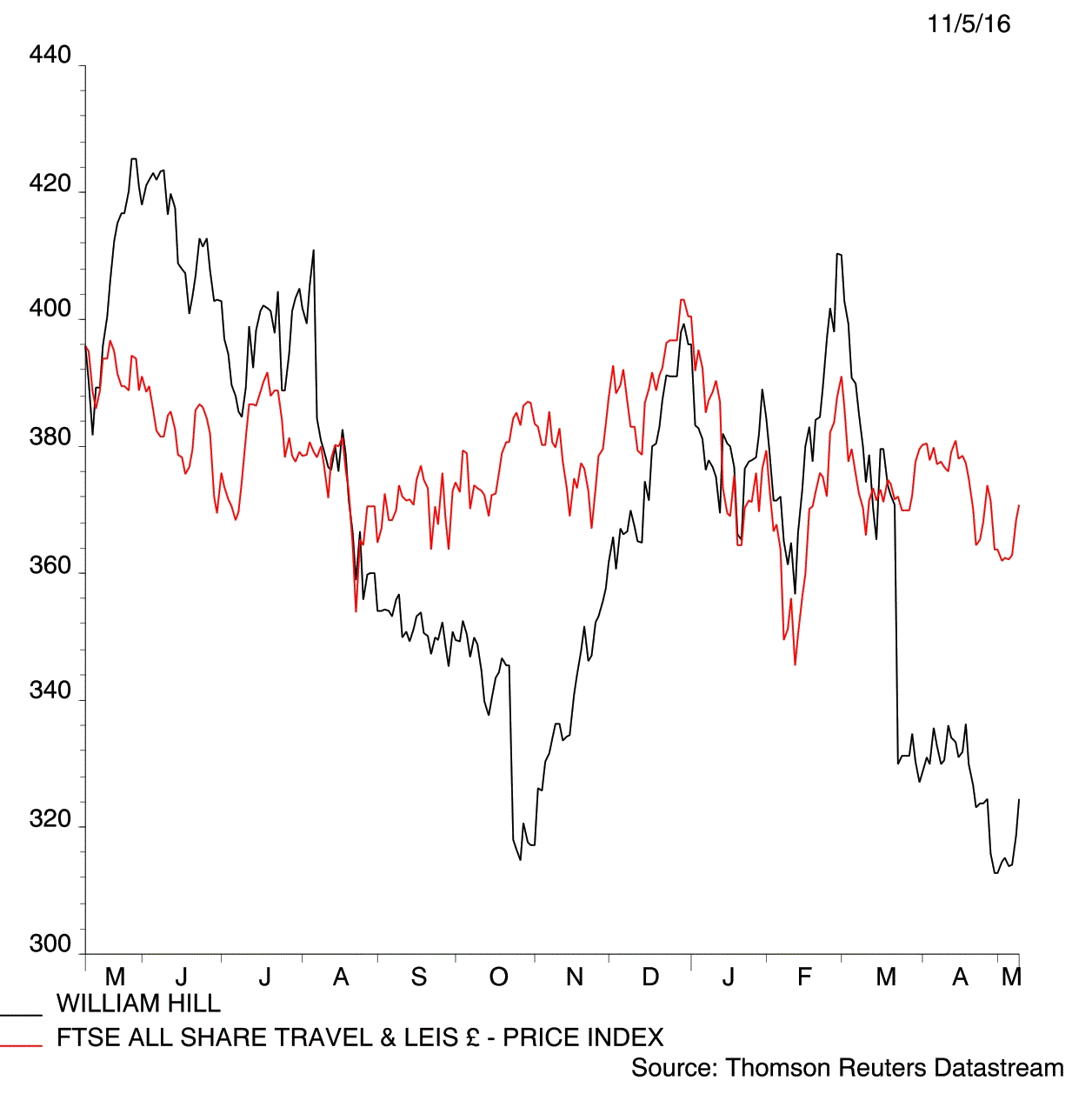
Another disappointing trading update from bookmaker William Hill (WMH) sends shares in the £2.9 billion cap tumbling 3.6% to 312.5p.
Online net revenue fell by 11% in the first quarter, primarily due to the big losses it suffered at Cheltenham and customer-friendly football results.
The amounts wagered in the UK slipped by 2% despite low margins, while UK gaming revenue was down by 5%.
Davy analyst David Jennings says this illustrates fundamental issues within the business. ‘We see gaming growth as a decent barometer for underlying growth as it is not directly affected by sports results,’ he says.
The 5% gaming revenue fall compares with Paddy Power Betfair’s (PPB) 17% growth. ‘The contrast in performance at present is clear,’ says Jennings.
William Hill is continuing to suffer from legislation introduced in October which requires gambling companies to offer automatic self-exclusions and time-outs, allowing problem gamblers to restrict themselves from placing bets.
It is also facing problems in its non-core markets, where online revenue fell by 23% in the first quarter. This could start to reverse in the second half when the anniversary of some market closures passes and the business laps some challenging tennis-related comparisons.
The retail performance is in line with expectations, with over-the-counter revenues flat and machine revenues up by 4%. Over-the-counter revenues are expected to be stronger when William Hill reports its interim results, as it will benefit from the Euro Championships in June.
The group has appointed Crispin Nieboer as its permanent head of online. He plans to improve the product and player yields and grow the online business internationally.
‘While these are lofty ambitions, it strikes us that they will not be achieved overnight; big ships take time to turn. In the meantime, we would like to see a renewed focus on the efficiency within the business so that when growth does return, it can be accompanied by strong operational gearing,’ Jennings says.
William Hill has reiterated its full year operating profit guidance of £260 million to £280 million, down from £291.4 million in 2015.
Canaccord Genuity has cut its target price from 365p to 340p, implying 9% upside.





